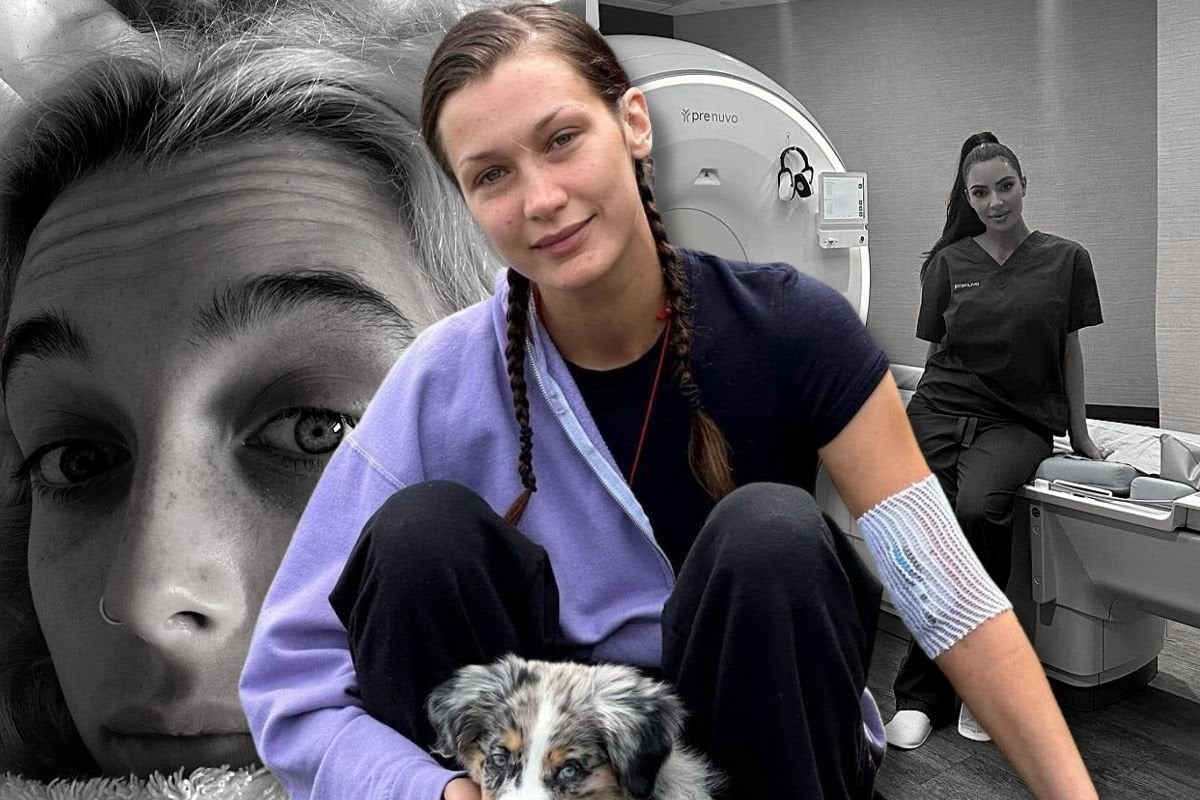
Since its inception in 2010, Instagram has been best known for its artfully retouched images, illustrating lives that are always aesthetically pleasing and problem-free. But recently, there seems to have been a shift, with more and more people leaning into feeds that are imperfect and unpolished.
Designer dresses, sleek hair and perfectly posed ‘candids’ have been replaced by empty coffee cups, low-fi photos, blemished skin and… medical photo dumps.
What is the medical photo dump?
The medical photo dump is exactly what the name suggests: a series of photos showing the poster in a hospital, with an IV drip attached to their arm, or promoting the latest health fad.
